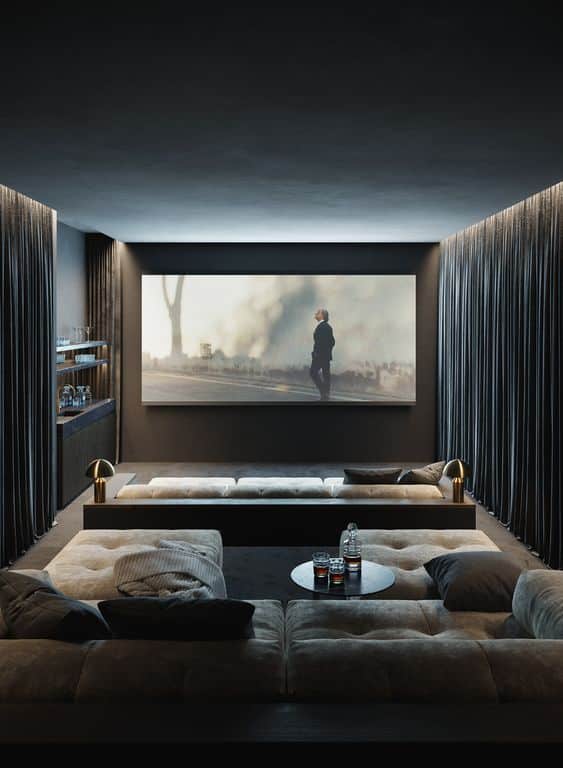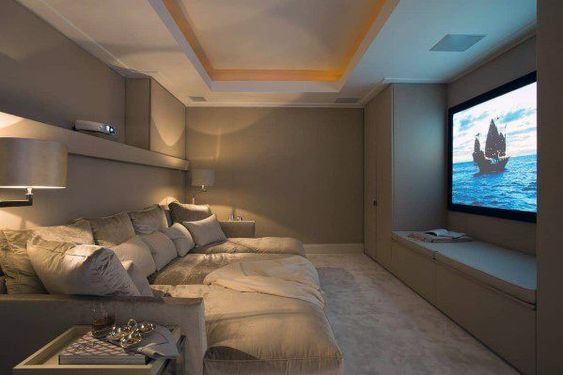For those who don’t give up a good movie, betting on the idea of a home cinema can be a very advantageous option. The multimedia resources currently available on the market, combined with high-resolution television sets and companies that provide series and movies – such as Netflix – guarantee entertainment without any obligation to conventional movie theaters. And the best, in the comfort of home.
Before starting to equip your living room – or another room in the house – to serve as a cinema, you need to plan the space and check if it meets some basic requirements for you to watch that special movie without any obstacles. Let’s go:


The first and most important step in this endeavor is to check the measurements of the place that will house your home cinema room. Not that a small room cannot be turned into a cinema, but you will need to adapt the furniture and TV to the environment.
A large TV in a small space is uncomfortable for the eyes, while a small TV in a very large room will not produce the expected effect either. Therefore, before going to the store and buying the equipment, take all the measurements.


Does your cinema room have adequate soundproofing? This item is important not to disturb other residents of the house or even the neighbors. A door in the room already helps a lot to hold the sound inside the environment. Another tip is to invest in wooden elements on-site. The material is a natural acoustic insulator and can be present in furniture, on the floor, and even on the ceiling.
Windows are often the main source of natural light in homes. And cinema does not go with clarity. The dark environment is more appropriate and it is not difficult to achieve this effect. A thick, dark cloth curtain is sufficient to block out light.
That low light, typical of cinemas before the start of the session, can be obtained with artificial lighting. Installing sconces on the side produces this effect, just remember to opt for yellow light bulbs instead of white ones. A dimmer-type switch can be a good outlet as well. It regulates light intensity.
This website uses cookies.